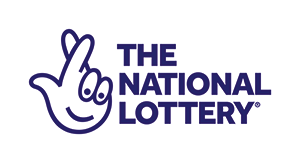British Baseball Hall of Fame Elects Class of 2024
24 December 2024

By Gabriel Fidler
The British Baseball Hall of Fame is pleased to announce the Class of 2024, which features two star pitchers and two ‘Game Builders’, those inducted for their contributions to grassroots sport, development of new players, and contributions to baseball in Britain. The Historic Committee selected Newton Crane, an American who was an energetic supporter and organiser of British baseball for three decades from 1889, and William Jarman, one of the first true British baseball stars as a pitcher in the 1900s and 1910s. The Modern Committee elected long-time Merseyside player and manager Rob Alger alongside Scottish player, manager, and administrator Nick Clark. A total of 56 men and women are now enshrined in the BBHOF for their superlative contributions to British baseball.
Over a thirty-year period from 1889, Newton Crane’s fingerprints appear on most of the serious baseball endeavours in England, and he was a driving force behind three of its most influential organisations, including British baseball’s first governing body, the National Base Ball League of Great Britain. Crane was also concerned with growth at the grassroots level, travelling the length of the country to meet with community leaders and the secretaries of prominent football and rugby clubs to promote the foundation of baseball clubs, encouraging national and local newspapers to devote regular coverage to baseball, penning a history of the game and introduction to the rules entitled Baseball, and even helping to start two clubs. A true baseball pioneer who was consistently portrayed as preeminent among baseball figures in Britain, he used impressive connections—including Henry Chadwick, Albert Spalding, Jr., King George V, and J.G. Lee (BBHOF Class of 2021)—to give British baseball its best chance to thrive.
While the full extent of his biography—or, indeed, his first name with certainty—is not known, one fact is certain: William Jarman was one of the top baseball players in Great Britain during the start of the twentieth century. English-born, and almost certainly a Londoner, Jarman won multiple national championships, earning the win in 1906 and 1911 as a pitcher, also appearing in the 1908 and 1909 national finals, taking the loss in both despite pitching well. He led Leyton to back-to-back titles in the London-based British League First Division in 1908–09, having also claimed the British League crown with Tottenham in 1906. The U.S. Army veteran was also be a key member of representative London teams during this era, regarded as the first All-England nines.
Rob Alger was one of the main faces of baseball on Merseyside from the 1970s until the 2010s. The British-born, two-way star played with Burtonwood Braves, Skelmersdale Tigers, and Liverpool Trojans during a stellar career that featured multiple championships. As a player, he excelled as both a pitcher and catcher. His signature curveball buckled many a batter’s knees, while his dominance of baserunners who dared to try and steal was unrivalled. Those that played with Alger often said he was one of the smartest ballplayers around, always one step ahead of his opponents. Those skills later made him a successful manager, and he led the Trojans to four consecutive Triple-A National finals between 2010–2013, claiming the championships in both 2011 and 2012.
‘I’m really, really, honoured, and wish I could still be there and contribute,’ noted Alger. ‘I thought [I might] mention some of the influences on my time in baseball. Stan Williams provided with me with the knowledge required to be a decent pitcher, [like] how to conduct yourself on the mound. The next big influencer was Hughie King of the Skelmersdale Tigers, also his brother Dennis, and pitcher Dave Taylor. They were true baseball players with a deep knowledge of the game and how to play it. Chris Gee was my regular catcher for about six or seven years. We formed a great bond while with the Burtonwood Braves.’
During a career that lasted nearly two decades, Nick Clark was a singular figure in the development of baseball in Scotland. He established a junior team in Edinburgh in 1991 as a 17-year-old and a ladies’ baseball league the following year. He went on to turn the Edinburgh Diamond Devils Baseball Club into Scotland’s pre-eminent team, winning the British Baseball Division I title in 2001. Under his leadership, the Diamond Devils became a Scottish pioneer in Europe. The team was the first Scottish side to compete in Confederation of European Baseball (CEB) tournaments, doing so from 2003 to 2006. Furthermore, Clark played a crucial role in the development of baseball at the national level, both with the Scottish national team and the development of Baseball Scotland.
‘I was truly humbled to find out I had been even nominated and ultimately deemed worthy of inclusion in the British Baseball Hall of Fame,’ remarked Clark. ‘I’m very honoured and quite surprised. I’m also very proud to be the first Scot to enter but hopefully will not be the last as so many have done so much for the sport north of the border. Over the years I have been lucky to meet and play with and against so many good people, working alongside them to grow the sport through a mutual love. As everyone knows who is involved in this sport across the U.K., it’s a hard graft at times for baseball to get traction, but the recent success of the GB National Team programme, the general increase in national awareness of baseball, and the growth in the number of clubs across the U.K. can only be a good sign. If my time running with the baton in Scotland helped with this in some way, then it’s job done.‘
‘Organised baseball has been played in Britain since 1890, with various periods of growth spurred on by the hard work of grassroots volunteers, with star players then drawing in the crowds,‘ explained Gabriel Fidler, Chair of the BBHOF. ‘The British Baseball Hall of Fame’s Class of 2024 celebrates a pair of game builders and players from the years around the turn of the twentieth and twenty-first centuries, from the inaugural baseball championship to the 2010s, representing the far reaches of Britain, from Scotland to Liverpool to London. I am particularly pleased that the BBHOF now includes its first member from Scotland. These inductees truly showcase the rich history, diverse nature, and quality of baseball in Britain.’
Biographies, statistical highlights, and photos of the previous 15 classes of inductees can be found at bbhof.org.uk. Articles on each of the four successful candidates this year will be published at a later date.
This article has been republished from Extra Innings. BaseballSoftballUK is not responsible for its contents.
















.png)


